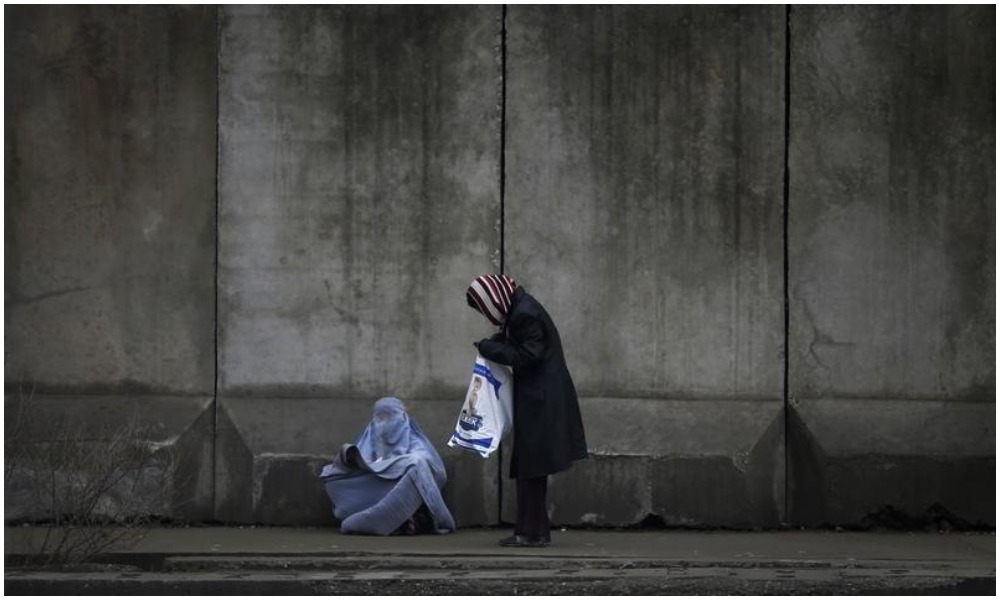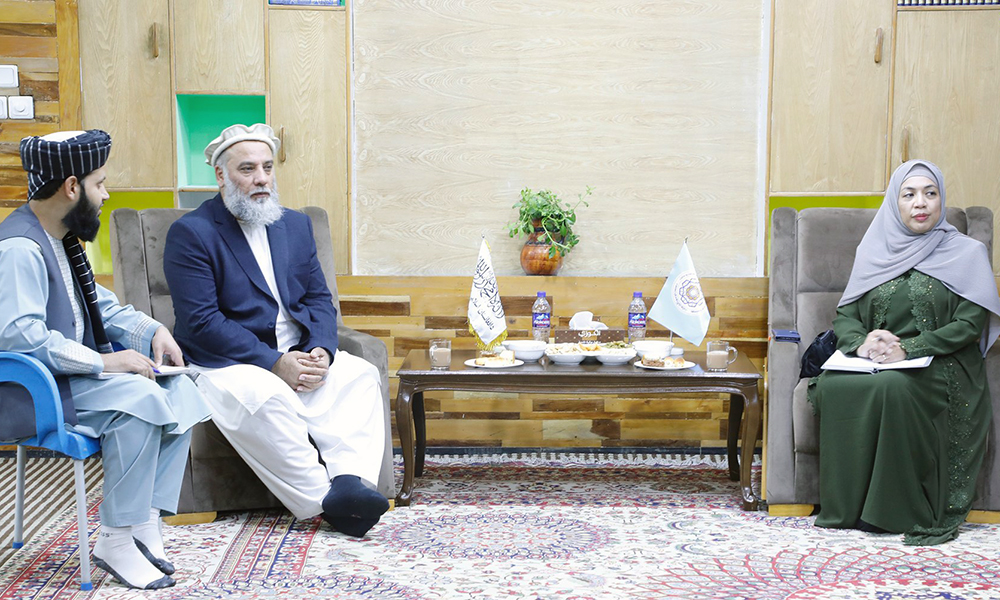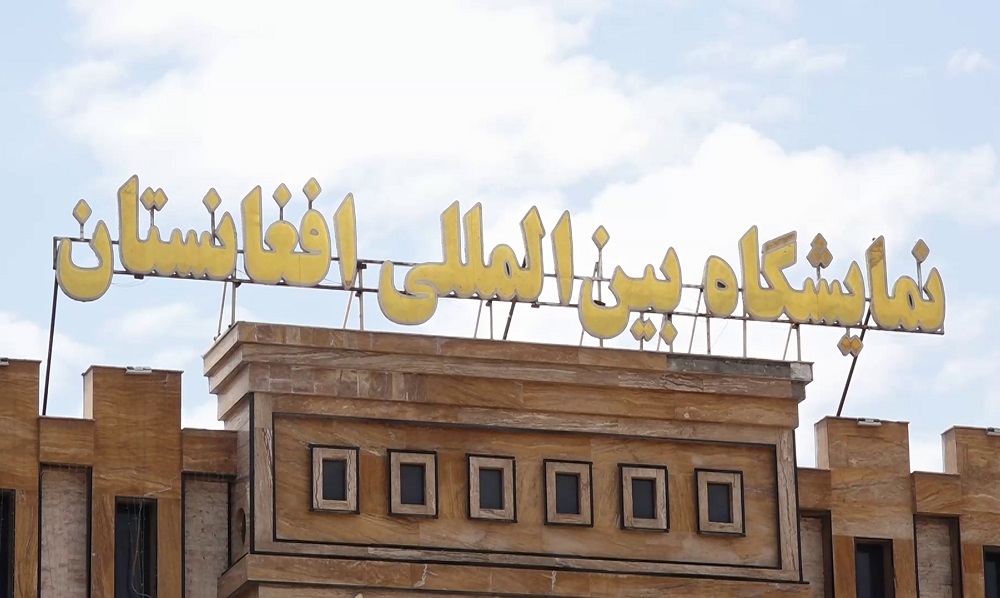Business
World Bank warns of increased poverty due to COVID-19 shock

The World Bank has stated that a clear commitment from international partners to continue grant support would help reduce uncertainty and improve investor confidence in Afghanistan which would in turn enable the country to recover from the severe impacts of the COVID-19 crisis.
In its twice-yearly report, the World Bank stated that South Asia as a whole is set to plunge into its worst-ever recession due to the pandemic which will take a heavy toll on informal workers and push millions of people in the region into extreme poverty.
According to the report, although Afghanistan experienced moderate growth in 2019 as the agricultural sector recovered from the impacts of drought, the economy is estimated to have contracted sharply in the first half of 2020 due to economic disruptions associated with nation-wide lockdowns, border closures, and declining remittance inflows.
In addition, the report stated that medium-term prospects are subject to high levels of uncertainty, related to the COVID-19 pandemic, peace talks and future international security and aid support.
“Given the shock to the economy, poverty is expected to increase in 2020,” the report stated.
While there was significant growth in wheat production, the World Bank said this was not enough to offset the large negative impact of COVID-19 on other sectors of the economy.
The World Bank stated that while inflation was low in 2019 (averaging 2.3 percent) it increased significantly in 2020.
One reason was that in March and April 2020 – during lockdown – panic buying and import disruptions resulted in a sharp increase in food prices, which led government to adopt administrative measures to prevent price gouging.
Government also initiated an emergency wheat distribution program that resulted in a food inflation decline in the months that followed.
In the first quarter of 2020 Afghanistan registered a growth in exports of 11 percent year-on-year, which reflected the improved performance of air corridors. However, a weak domestic demand led to a 14 percent decline in imports.
“In the second quarter of 2020, both imports and exports fell precipitously given border closures and disruptions to trade and transportation, with greater absolute declines in imports driving an improvement in the trade and current account balances,” the report read.
With the onset of the COVID-19 crisis, weak economic activity, disruptions to trade and compliance, revenue performance deteriorated significantly and revenue estimates for 2020 were revised downward by over 30 percent (from Afs 209 billion to 144 billion) in the budget mid-year review.
“Total domestic revenue collection at end-June reached Afs 74.7 billion, 20 percent lower than the initial budget target,” the report stated.
Poverty meanwhile is believed to have worsened in 2019 surpassing 54.5 percent amid continued violence and political uncertainty and “in the first half of 2020, with declining household incomes due to economic hardship, higher food prices due to COVID-19, a significant fall in remittances, and high returnee flows, poverty is estimated to have further increased,” the report read.
According to the report, the outlook for the rest of 2020 was grim as the GDP is expected to contract by 5.5 percent – again largely due to the impact of the pandemic.
“In following years, the pace of recovery is expected to be constrained in a context of continued insecurity, uncertainties regarding the outcome of planned peace talks, and questions about the level and duration of international security and aid support.
“The trade deficit is projected to narrow to 26 percent of GDP down from 30.4 percent in 2019. While exports are projected to fall by 24 percent, imports are expected to decline by around 18 percent,” read the report.
World Bank analysis meanwhile suggests that the combination of reduced incomes and higher prices could drive the poverty rate to as high as 72 percent in the medium term.
“Over the medium term, the poverty outlook hinges on the pace of economic recovery and the continued provision of international aid and humanitarian support,” the report read.
“The main source of downside risk to the outlook stems from possible further adverse COVID-19 developments,” the World Bank stated adding that additional sources of risk include further political instability, a deterioration of security conditions, uncertainties associated with the planned peace agreement with the Taliban, and precipitous reductions in aid flow.
“By contrast, on the upside, a sustainable and credible political settlement with the Taliban could help boost growth, confidence and private investment,” the bank stated.
In terms of recommendations, the World Bank stated that given Afghanistan’s declining revenues and constrained fiscal potential, public expenditures need to be carefully directed to protecting the vulnerable, limiting long-term economic damage, and establishing solid foundations for economic recovery.
“To support households, the government should prioritize: i) targeted social protection measures; and ii) ensuring the continued provision of basic services, especially healthcare.
“To support the private sector, priorities include: i) pursuing business regulatory reforms to facilitate new investment; ii) expanding access to credit; iii) ensuring the continued provision of basic infrastructure; and iv) avoiding accumulating arrears to private sector vendors.”
Business
Azizi calls on Malaysian investors to invest in Afghanistan

Nooruddin Azizi, Acting Minister of Commerce and Industry, met with representatives from the ministries of foreign affairs, defense and interior of Malaysia, along with other senior officials, on Wednesday and called on Malaysians to invest in Afghanistan.
The visiting delegation is being led by senior diplomat Dr. Shazelina Zainul Abidin.
According to the IEA’s foreign ministry, the two sides discussed bilateral trade, holding a business communication conference to strengthen trade relations between the two countries, the trade balance between Afghanistan and Malaysia, and creating a market for Afghan products, including carpets, cotton, and minerals.
According to the ministry, at the end of the meeting, the Acting Minister emphasized the increase of investment from regional countries in Afghanistan and called on Malaysian investors to also invest in Afghanistan.
Business
Afghanistan starts exporting via railway to Turkey

The Ministry of Interior says that Afghanistan has started exporting goods to Turkey via the Herat-Khaf railway line.
In a post on X, the ministry said: “Afghanistan’s exports to Turkey started in a calm atmosphere through the Herat-Khaf railway line.”
The ministry added that one train will run daily for a month and then two trains will run daily.
According to the ministry, the security of Khaf-Herat railway line is provided by the guards of the National Public Protection Agency.
Khaf-Herat railway project not only connects Iran and Afghanistan by rail, but also completes a 2,000-kilometer route along the east-west rail corridor from China, through Uzbekistan, to Afghanistan, to Iran, and on to Turkey and Europe.
As a landlocked country, this railway network will provide a safe route to connect with Europe via Iran’s railway network and Iran’s southern ports.
This railway line is strategic for trade between Iran and Afghanistan and will allow six million tons of goods to be sent between the two countries.
Business
Afghanistan, Kazakhstan to hold joint expo in Kabul

A joint expo between Afghanistan and Kazakhstan will be held in Kabul in the next four days, officials said on Sunday.
Officials of the Ministry of Industry and Commerce said that the two-day expo will be held for the purpose of expanding and strengthening trade relations between the two countries.
“This expo will be held as a follow-up of the Kazakh-Afghan international expo, which was held in the city of Astana, Kazakhstan, with the participation of a large delegation of the government and the private sector of the Islamic Emirate of Afghanistan,” Abdulsalam Javad Akhundzadeh, the spokesman of the Ministry of Industry and Commerce, said.
“At this expo, domestic products from different sectors of Afghanistan and the Republic of Kazakhstan will be put on display for two days.”
According to officials, 40 large Kazakh companies, and 40 large Afghan companies will exhibit their products.
Mohammad Saber Latifi, head of the Afghanistan International Expo Center, said that fruits, minerals and commercial services will be displayed at the expo.
During the expo, various memorandums of understanding for the trade of goods are also expected to be signed by companies.
-

 Latest News5 days ago
Latest News5 days agoPakistan’s frontiers minister stresses ‘dignified’ return of Afghan refugees
-

 Latest News3 days ago
Latest News3 days agoRashid Khan named AWCC’s brand ambassador
-

 Regional4 days ago
Regional4 days agoIranian president lands in Pakistan for three-day visit to mend ties
-

 Climate Change5 days ago
Climate Change5 days agoMassive river flooding expected in China, threatening millions
-

 World5 days ago
World5 days agoTwo Japan navy helicopters crash, one body found, 7 missing
-

 Sport4 days ago
Sport4 days agoKolkata beat Bengaluru by one run in IPL as Kohli fumes at dismissal
-

 Sport4 days ago
Sport4 days agoACL: Aino Mina 3-0 Istiqlal Kabul; Attack Energy 3-0 Khadim
-

 Climate Change4 days ago
Climate Change4 days agoRescuers race to reach those trapped by floods in China’s Guangdong
























